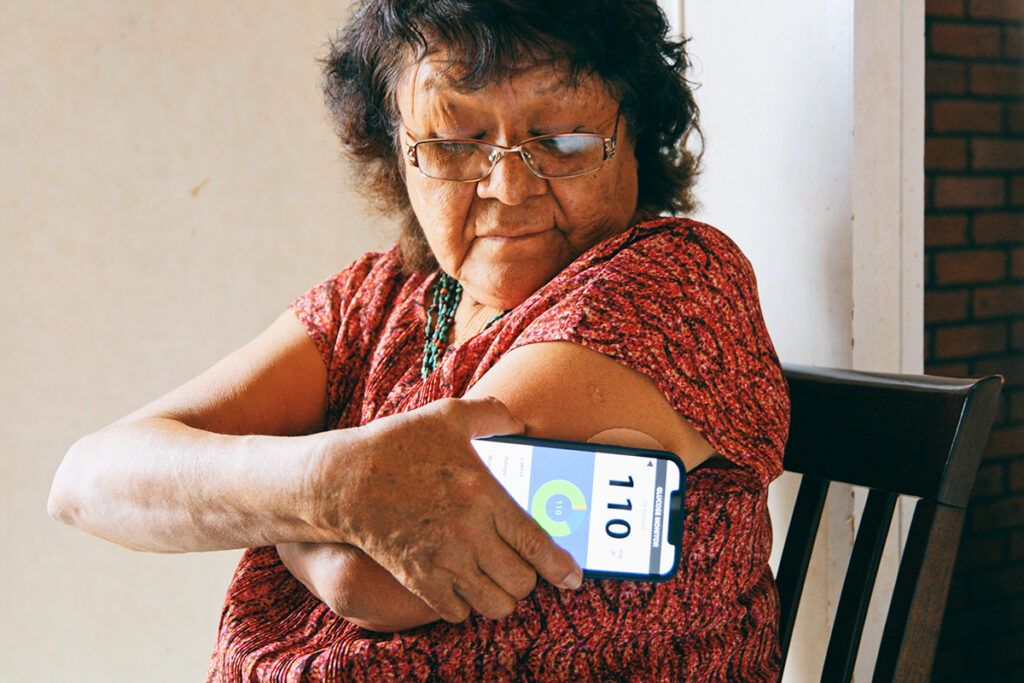Millions of people worldwide have diabetes, and some may have difficulty managing it.
If you have diabetes, the most effective way to manage and maintain blood sugar levels is to follow the treatment plan your doctor prescribes.
Not following your treatment plan can increase your risk of developing diabetes-related complications.
The most common complications include those that affect your:
- kidneys
- feet
- cardiovascular system
Symptoms

According to the Centers for Disease Control and Prevention (CDC), more than 1 in 10 people in America have a type of diabetes. How quickly you notice symptoms of diabetes will depend on the type of diabetes you develop.
Type 1 diabetes can develop quickly, and symptoms often appear suddenly, usually during childhood or adolescence, although it can also develop in adults. Type 2 diabetes often develops slowly, sometimes over many years.
There are differences between type 1 and 2 diabetes, but they have similar signs and symptoms. Try to familiarize yourself with these, as understanding the signs and symptoms can help you identify when your blood sugar levels are at unsafe levels.
According to the CDC, symptoms include:
- urinating frequently
- extreme thirst
- constantly hungry
- fatigue
- dry skin
- slow healing sores
Type 1 diabetes can cause additional symptoms like stomach pains and vomiting. However, type 2 diabetes symptoms develop slowly and may be difficult to spot.
These symptoms are due to hyperglycemia, which occurs when there is too much glucose in your bloodstream. This can cause long-term harm to various body tissues, including your nervous system.
Complications
There are various reasons why you might find it challenging to manage your diabetes symptoms. For example, you may have only recently received a diabetes diagnosis and started treatment with insulin, so you might need some time to come to terms with your diagnosis, recognize the symptoms, and adjust.
According to a 2018 review, many people who receive a diagnosis of type 2 diabetes do not receive enough education about how to effectively manage their condition through treatment or the possible complications that can occur if diabetes is left untreated.
Some of these complications include:
Kidney failure
High blood glucose levels, also known as high blood sugar or hyperglycemia, can damage your blood vessels. When this happens, they don’t function as well. When this damage occurs in your kidneys, it can cause diabetic kidney disease, or diabetic nephropathy, which develops in about 1 in 3 adults with diabetes.
Your kidneys filter, clean, and remove excess water from your blood and create urine. When the blood vessels in your kidneys are damaged, they cannot filter your blood effectively, which causes a buildup of waste in the body.
Early-stage kidney disease typically has no symptoms, but late-stage kidney disease can cause:
Cardiovascular complications
Over time, high blood glucose levels damage your blood vessels and nerves that surround and control your heart muscle. This can lead to high blood pressure, which is a risk factor for heart disease. Heart disease can lead to stroke and other heart problems, such as a heart attack.
According to the American Diabetes Association (ADA), people with diabetes are twice as likely to experience a stroke than people without the condition.
Foot infections
About half of people with diabetes experience nerve damage, known as neuropathy. This causes loss of feeling in the skin of a particular area. Some people who have difficulty effectively managing their diabetes may develop peripheral neuropathy. This can occur in the feet and may lead to ulcers and infection.
Untreated diabetes and prolonged high blood glucose levels can reduce your immune system’s effectiveness, leading to increased infections and slowed healing.
Diabetic ketoacidosis
Diabetic ketoacidosis (DKA) is a serious complication of hyperglycemia. It is more common in people with type 1 diabetes but can also occur in people with type 2 diabetes.
DKA happens when long-term high blood sugar levels cause your blood to become too acidic. During DKA, your body starts to break down fat instead of glucose for energy. This process creates ketones that accumulate in your bloodstream, increasing its acidity.
DKA can cause:
- dry mouth
- shortness of breath
- confusion
- sweet-smelling breath
- in severe cases, diabetic coma
If you suspect you have DKA, you should seek immediate medical attention because it can be life threatening.
If you need help covering the cost of medications, the free Optum Perks Discount Card could help you save up to 80% on prescription drugs. Follow the links on drug names for savings on that medication, or search for a specific drug here.
